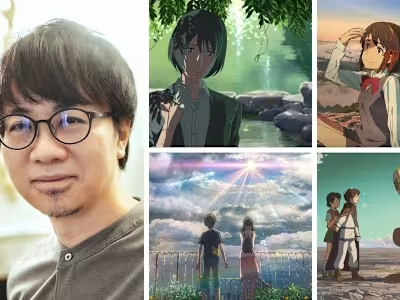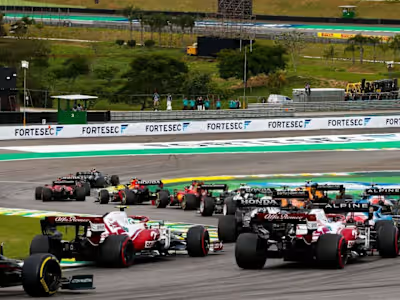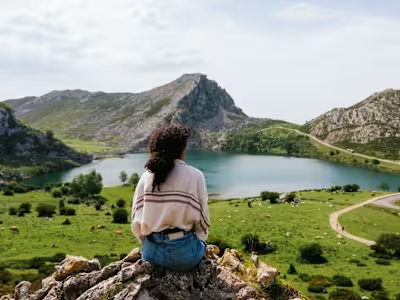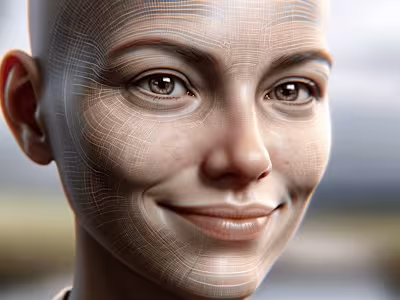The Story About the Strange African Accents in Hollywood
Hollywood has depicted various parts of the world in movies for the longest time. They have shown historical incidents around the world in the best way possible. But they distorted a lot of other elements while making movies!
For instance, Hollywood has shown their creativity by painting a picture of their version of Africa. They are known for exercising their creative liberty to a great extent. So far, it also distorts facts.
Let me put it this way. AFRICAN'S DON'T SPEAK THE WAY SHOWN IN HOLLYWOOD MOVIES. *glass shatters* Yes, you heard me. Take any movie you can think of. Popular ones like Marvel's Black Panther have also been guilty of being divorced from reality. This happens because of the image that America or Hollywood at large has of Africa and Africans.
While researching this online, I found this article on The Establishment, where the author talks about reading Mistaking Africa: Curiosities and Inventions of the American Mind, by Curtis Keim. He said, "There is nothing wrong with entertainment, of course, except that this is where we pick up our ideas about Africa."
I completely agree. MARVEL's Black Panther was the first fictitious depiction of what the African tribes are like to me. The way they live, the clothes they wear, their culture, etc. But the fly in the ointment was the way they spoke. The accent was heavy and for a while, I struggled to understand what they were saying. Worst part? The characters spoke in "different" African accents. (Again, according to Hollywood.)
For example, let's take Late Chadwick Boseman's accent in the movie. He played the role of Prince T'Challa. The accent was supposed to be a South African one. Xhosa was the character's native language. But all of it was just an exaggerated depiction and self-parody of a South African.
NPR’s Tim McDonnell described some audience members as having “found [the accents] forced, vague, and unconvincing, with heavily articulated consonants and a grab-bag of speech patterns from Nigeria, South Africa, and the Swahili-speaking countries of East Africa.”
In defense, Barbara McGuire, the dialect coach for Black Panther, said the overlapping of African accents and African voice training plausibly conveys the "mix of tribes that are in Wakanda."
The next example is a recent release, which had a mixed bag at the box office. The Woman King. Viewers have slammed the movie trailer for its cringe-worthy, irritating, and hilarious accents. The characters spoke English in the movie, which was wrong). The Dahomey people spoke Fongbe. Viola Davis, who played the role of Nanisca, relied on Hollywood's generic, fake, put-on African accent. John Boyega, who played King Ghezo, spoke like his Nigerian parents. Thuso Mbedu, who played the role of Nawi, sounded like she was speaking in a modulated native South African accent.
What could've been done in The Woman King is to mix English with phrases and words of Fongbe. I understand that directing a movie in an African dialect would mean nothing to the audience, but balancing the linguistics in the movie would've reduced the negative response the film received because of its differences in accents.
Films like Black Panther and The Woman King being popular at the box office despite their evident flaws show what Hollywood deems "culturally" acceptable content needn't be accurate. The weird speech and accent found in both movies only reduced the overall strength of their authenticity. They were also reminders of Hollywood's perceptions of Africans.
When movies like these are shown in Africa, it leaves the audience cringing, as they are embarrassingly funny but at the same time offensive to their faces. This also deepens their wounds as it re-enforces negative perceptions of African struggles in real life.
It is also important for the "Hollywood think tank" to remember that not all African accents sound the same. So the generic stencil that actors use in movies about Africans is culturally insulting. The Nigerian English accent is hugely different from the South African accent. The Kenyan accent sounds nothing like the Ghanaian tongue. Therefore, dialect coaches in movies need to make sure that two characters of the same tribe don't speak with different accents.
A good Afro-centric story does not necessarily need to have poorly accented dialogue. Movies like The God's Must Be Crazy are a classic example where showing the tribes, and their actions (without dialogue) made the movie entertaining without distorting or insulting any community culturally.
There are many cinematic themes and Afro-centric stories and plots that can be explored rather than constantly showing the same old "once upon a time royalty" or colonialism and slave trade. Historic storylines are relevant and make for good plots, but it is time to be progressive. Directors can take inspiration from movies like The Color Purple, which focuses on showing the African community being more progressive. It is about time that Hollywood stops obsessing over African history and starts "imagining" Africa's future.
as
Like this project
Posted Apr 26, 2024
Hollywood has always misunderstood Africans, and those of Afro-American or British-African origins have no clue about their roots.
Likes
0
Views
15







